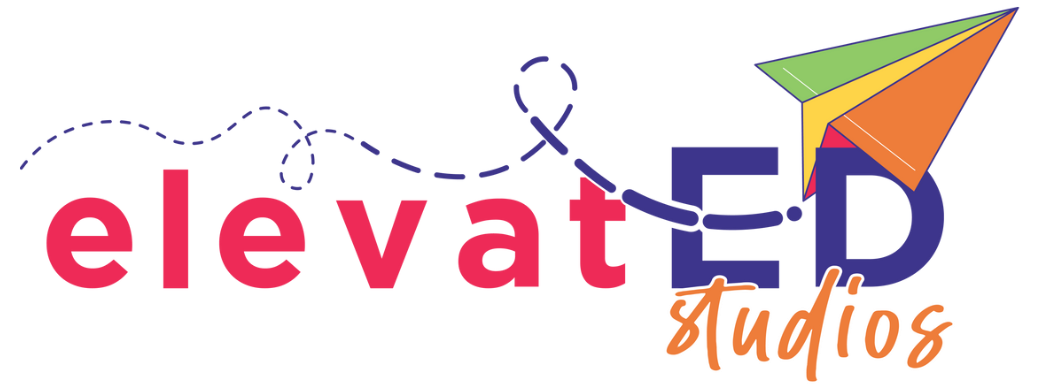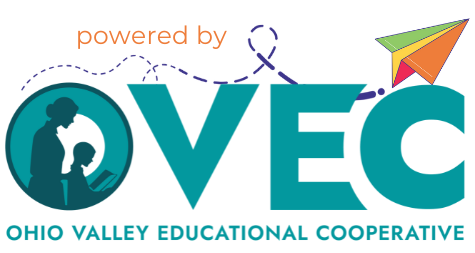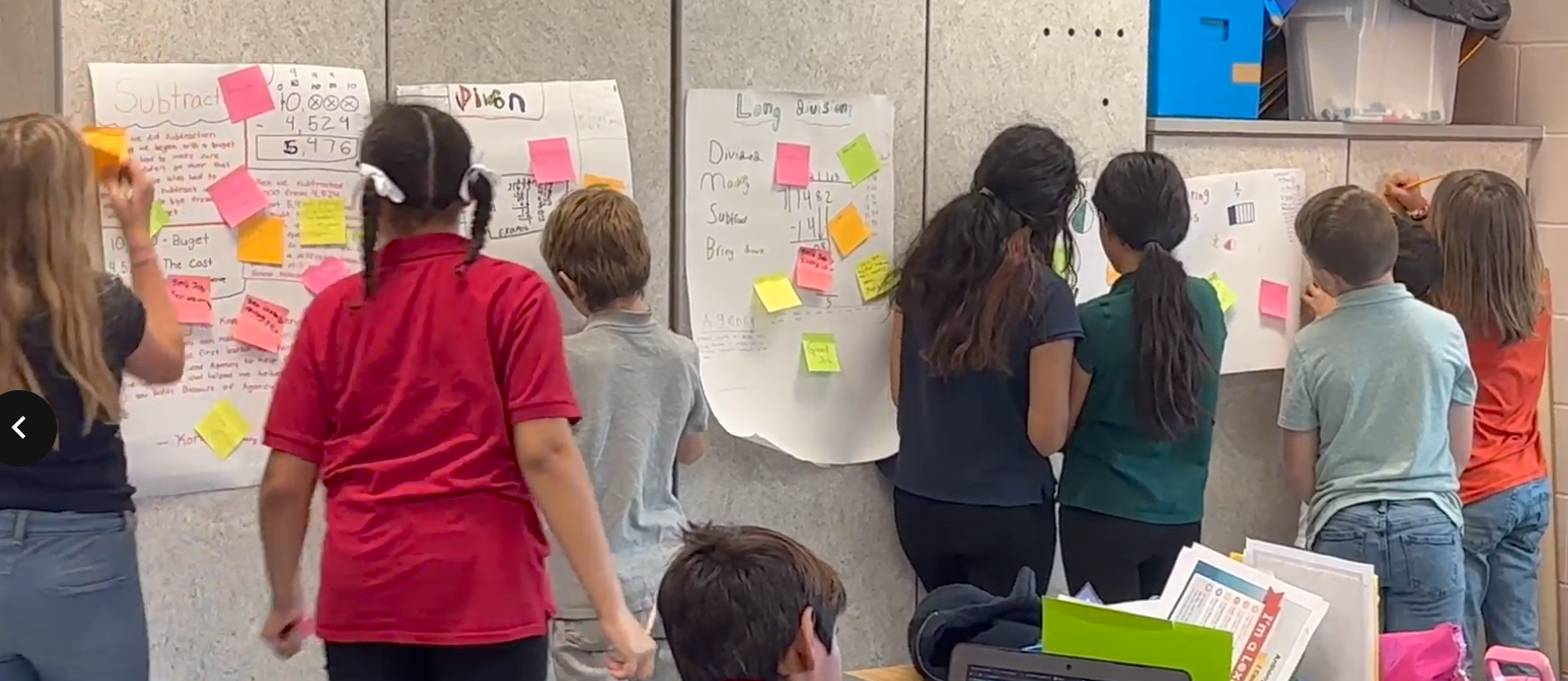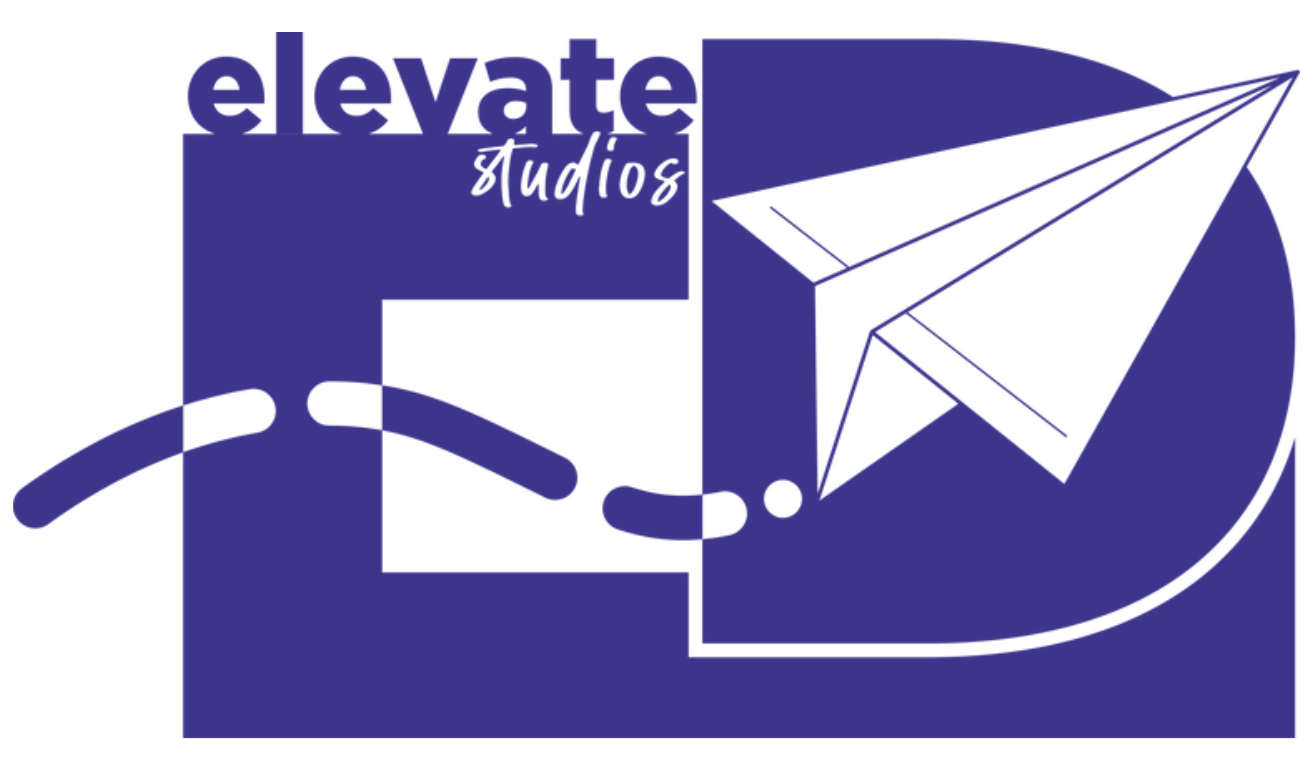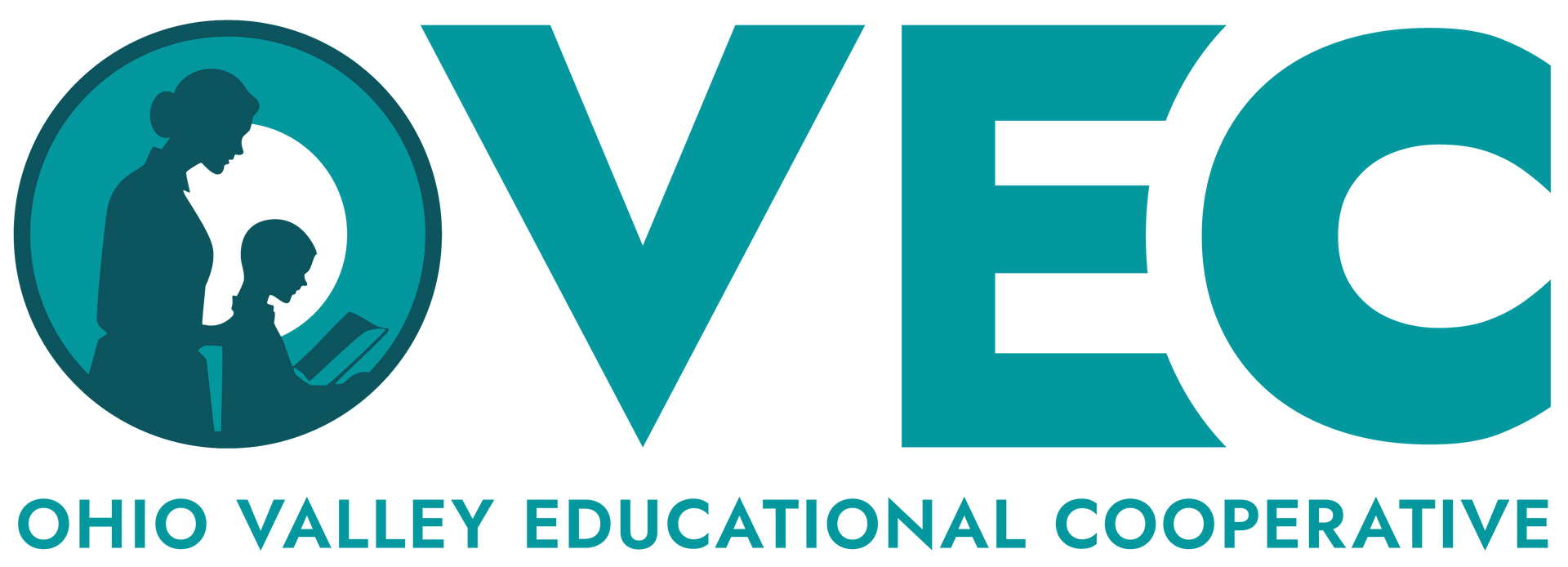
This week in CONNECTIONS:
- REFLECT. REVIEW. REMEMBER | Making meaning through a special end-of-year challenge.
- INTRODUCING MAP. MIRROR. MOVE | A New Tool for Reflecting on your Local Accountability Dashboard.
- 10 LANGUAGES: ONE CLASSROOM | Learn how one teacher used a proficiency-based model for language learning to inspire new thinking about language aquisition and the potential of performance-based credentialing across content areas.
Nature's Symphony
CONNECTIONS
May 2025 | Issue 21
WHAT MAKES LEARNING STICK?
What do students really remember from a school year?
That question takes center stage this time of year, especially as testing and end-of-year wrap-ups approach. Naturally, we start searching for creative ways to help students reflect on what they’ve learned. One of our favorite approaches is a simple two-part challenge.
A SPECIAL CHALLENGE
You may recall Barret Middle School principal Amy Strite once shared a clip of math teacher Tammy Hodges posing this challenge:
With your group, list the names of all the lessons you remember from this year, and then…
Choose the one your group remembers the most about, and create a poster including as many details as possible.
Not only did this prove to be a powerful way for students to reflect, but finding out which lessons (and learning!) they remembered uncovered important insights about what makes learning stick.
SHARING THE CHALLENGE
Because the takeaways from this activity were so impactful, we challenged our Teacher Navigators to do the same thing with their students. Morgan Seely (4th grade, Shelby Co) and Michelle Gross (7th grade math, Spencer Co) did just that.
Just as with Tammy’s students, the results were both affirming and inspiring. You won’t be surprised to know that the lessons students recalled were the ones where they created something new, had choices, worked together to solve real problems, made connections to their own lives, and/or shared their work with an authentic audience.
In other words, the lessons the students remembered were rooted in the Transformations: Learner-Led, Learner-Owned, Personal, Real-World and Collaborative
DO YOU HAVE OR KNOW TEACHERS WILLING TO POSE THE CHALLENGE?
We’re sharing clips from Michelle and Morgan’s experiences below as an invitation:
Could this simple challenge spark powerful reflection for your students, too?
🟣 4th Graders Tackle the Challenge | Morgan Seely
🟣 What Makes Learning Stick? | Michelle Gross Reflects
Asking students to reflect—through drawing, discussion, writing, or video—offers more than review. It celebrates their learning and helps uncover what leaves a lasting impact. If you know teachers who might be interested, let us know—we’d love to learn alongside them!

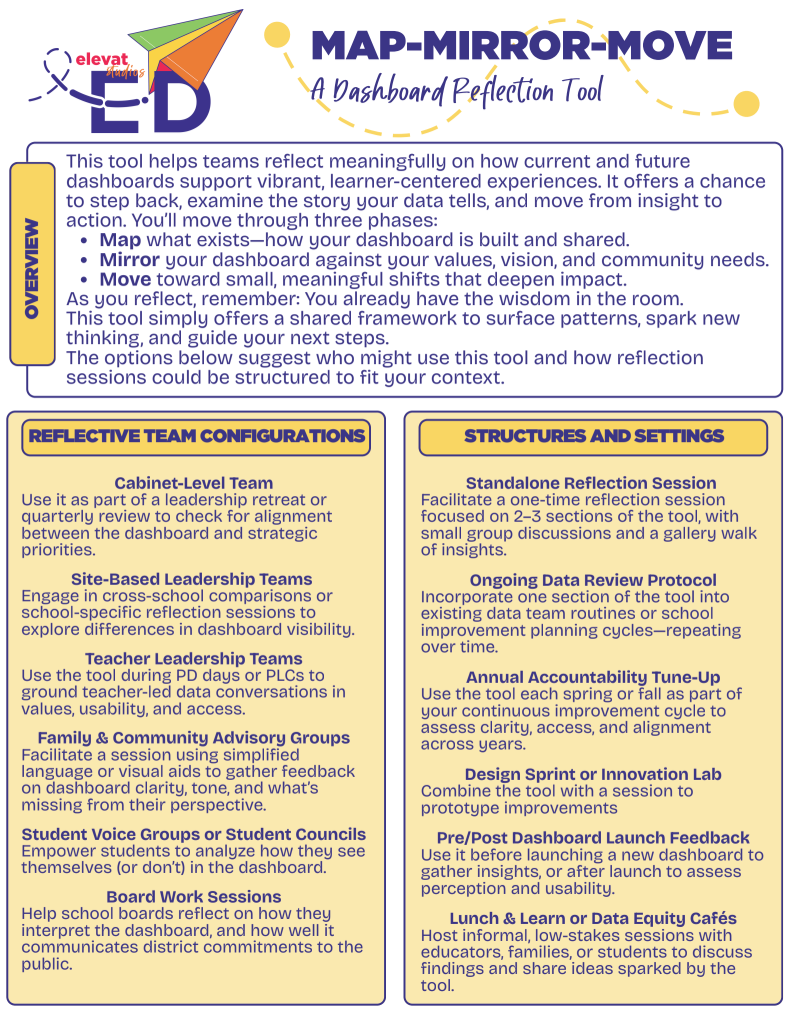
Highlighting a New Tool: Map, Mirror, Move – A Dashboard Reflection Tool
Districts across Kentucky are defining success collaboratively with their communities through what's known as Local Accountability. This approach allows districts and schools to tell a more complete and relevant story of student learning, culture, and progress—one grounded in their own values, vision, and priorities.
Rather than focusing solely on traditional metrics, local accountability invites districts to ask: “Are we doing what we, as a community, care about—and how do we know?”
After answering that question and deciding what metrics are important, the next step is often deciding how to best report progress on those metrics. In some cases, districts are choosing to communicate their progress through some form of a dashboard.
Although dashboards can be a way to provide a snapshot of progress, it’s always important to keep in mind why a local accountability effort began. Is the goal ultimately to reimagine what school can be leading to a transformed student experience? And, if that’s the case, is the dashboard helping us to accomplish this?
Keeping the Main Thing…the Main Thing
The Map, Mirror, Move reflection tool is designed to help teams step back, examine the story their data is telling, and move from insight to action. Whether you're just launching a dashboard or revisiting one that’s living, this tool offers a structured, values-centered way to reflect and reimagine.
Using the tool, you’ll move through three phases:
Map what currently exists — who sees the dashboard, how it's used, and how user-friendly it is.
Mirror the dashboard against your values, equity goals, and the deeper story it tells about student success.
Move toward small, meaningful shifts that better align the dashboard with your community’s needs.
This tool can be used with cabinet teams, school leaders, teacher leaders, families, student groups, or even school boards. It’s flexible enough to fit into a standalone reflection session or be integrated into existing cycles like data reviews or strategic planning.
Dashboards as Tools for Change
We believe dashboards should be more than digital reports — they should spark conversation, reflect your values, and serve as living tools for change. If you’re interested in partnering to bring this reflection tool to life in your district, we’d love to support a session, help adapt it for your audience, or co-design next steps with your team.
Ready to explore possibilities? Contact us today!
EXPANDING OPPORTUNITIES | Kentucky law allows high school students to earn credit in the traditional time-based approach based on the Carnegie Unit or through a Performance-based Credit, an approach based on demonstrating learning.
A recent April blogpost from the Aurora Institute tells the story of a teacher who opened new possibilities for his students through a proficiency-based approach to language learning, one that has important implications for the opportunities we offer our students across all content areas.
“In a classroom at Delmar High School in Delmar, Delaware, Spanish teacher Ryan Allen helped something remarkable happen: 23 students, each learning one of 10 different languages, thrived without a set curriculum, direct instruction, or traditional assessments. Instead, with his mentoring they followed their interests, engaged in self-directed learning, and demonstrated validated proficiency gains that challenge long-held assumptions about language acquisition and classroom learning in general.” Read the full article here.

VIBRANT LEARNING: WHAT’S AI GOT TO DO WITH IT? Join us for what promises to be an incredible kick-off for a thriving AI network for KY Educators on June 4! Together, we will share, learn and explore the game-changing opportunities AI provides for students, teachers and leaders. Let’s shape the future of AI in education—together! 🚀 Learn more and register here!
IT’S BACK! MOMENTUM 2025 | That’s right - the conference created to provide an opportunity for KY teachers to share and celebrate vibrant learning experiences is back for a second year! Momentum 2025 will be held on June 18, again at the STEAM Academy in Lexington. Registration is live! Don’t wait - space is limited! Stay up-to-date by bookmarking the conference website: MOMENTUM 2025.
LEARNING IN JULY | Take a sneak peek to see what’s coming from the team at ElevatED Studios this summer and register HERE

WHAT MIGHT THE NEXT STEPS BE FOR YOUR CLASSROOM, SCHOOL OR DISTRICT?
Whether looking for ways to bring your Profile to life, rethinking the way we use time, designing your local accountability system, creating a performance assessment system or finding simple shifts to create a different - and much more meaningful and memorable - learning experience, we’d love to be your design partners. Check out some of the key ways we can partner with your school or district here!
Not sure what your next steps need to be? We can help with that too! Contact us at elevatED studios!
